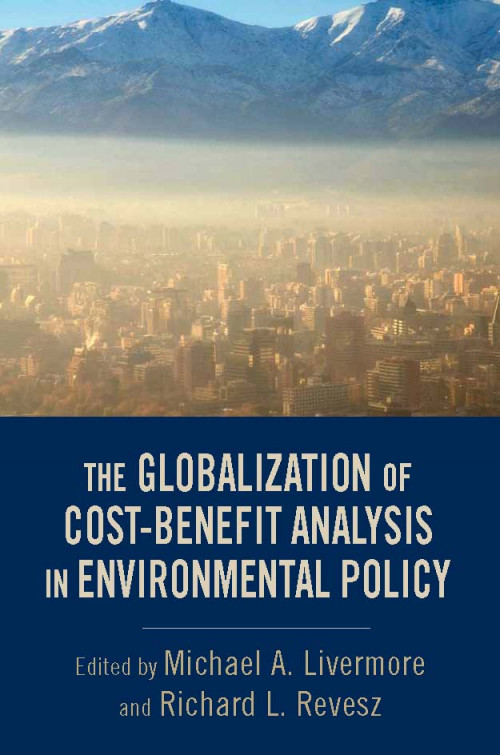-
Comments to Chugach National Forest on Revision of its Resource Management Plan
Policy Integrity submitted comments to the Chugach National Forest advocating for the use of cost-benefit analysis in the revision of the forest’s Resource Management Plan. The US Forest Service updated its rule last year on how individual forests should develop their management plans, eliminating an explicit requirement to study the net present value of management alternatives. The forests, though, were left with some discretion, which we think forests like Chugach should use to incorporate cost-benefit analysis into their planning.
-
Comments on ACUS Committee on Regulation Recommendations on CBA
Policy Integrity submitted comments on draft recommendations proposed by the ACUS (Administrative Conference of the United States) Committee on Regulation on the use of cost-benefit analysis at independent regulatory agencies.
-
Letter to OIRA on Review Delay
Policy Integrity submitted a letter to OIRA on its long delay in reviewing two rules from the Department of Labor. The rules, Occupational Exposure to Crystalline Silica and Occupational Injury and Illness Recording and Reporting Requirements, have been under review for 764 and 483 days, respectively. OIRA review of rules from the Department of Labor since 1994, the first full year of review under the 90-day framework established by Executive Order 12866, has lasted an average of only 60 days.
-
Michael Livermore Gives Congressional Testimony on the Affordable Care Act
Michael Livermore, director of Policy Integrity, presents testimony today on the Affordable Care Act’s Summary of Benefits and Coverage (SBC) rule to the Senate Committee on Commerce, Science, and Transportation. The testimony will be featured in a hearing entitled, “The Power of Transparency: Giving Consumers the Information They Need to Make Smart Choices in the Health Insurance Market.”
-
Winding Down Energy Tax Breaks Wiki
Policy Integrity is winding down its energy tax breaks wiki after over a year of compiling the expertise of lawyers, economists, tax professionals, and concerned citizens to catalog tax breaks received by the fossil and renewable energy industries.
-
EPA Petition to Curb Greenhouse Gas Emissions
Policy Integrity submitted a petition today urging the EPA to fulfill its obligation under Section 115 of the Clean Air Act to instruct all fifty states to cut greenhouse gas emissions. If EPA ignores or denies the petition, Policy Integrity can pursue appropriate legal action to force the agency to respond.
-

The Globalization of Cost-Benefit Analysis in Environmental Policy
The Globalization of Cost-Benefit Analysis in Environmental Policy examines how cost-benefit analysis can help developing and emerging countries confront the next generation of environmental and public-health challenges. Analysis in the book examines the growing reach of cost-benefit analysis; presents relevant case studies where cost-benefit analysis has been incorporated in the Americas, Africa, Middle East, and Asia; and includes a discussion on the conceptual and institutional issues that must be addressed when adopting cost-benefit analysis in developing and emerging countries. By providing both theoretical and practical discussion of this important new tool, this book makes a valuable contribution to the fields of environmental policy, development studies, and environmental law.
-
Amicus Brief on MATS Rule
Policy Integrity submitted an amicus brief in conjunction with the Tulane Environmental Law Clinic and the Harvard Emmett Environmental Law & Policy Clinic in support of the EPA for a federal court case challenging the agency’s proposed standards to curb mercury and toxic air pollution from power plants. Some industry groups are contesting the EPA’s “National Emission Standards for Hazardous Air Pollutants from Coal and Oil-Fired Electric Utility Steam Generating Units” (otherwise known as the MATS rule) finalized last year.
-
Lawsuit Challenging BOEM’s plan for selling offshore leases
Policy Integrity, along with environmental attorney Steven Sugarman, are counsel to the Center for Sustainable Economy (CSE) in their lawsuit against the Bureau of Ocean Energy Management (BOEM) to halt the agency’s first five-year outer continental shelf oil and gas leasing program approved since the Gulf oil disaster.
-
File Notice of Intent to Sue EPA
Today we submitted a notice of intent to sue EPA for failing to take certain actions to guard against climate change. In 2009, we asked the EPA to limit the carbon emissions that come from mobile sources like cars, boats and planes. The agency did not respond, as it is legally required, so we will now take the next step in notifying them of our intention to sue.
